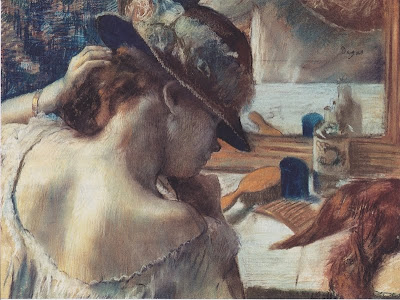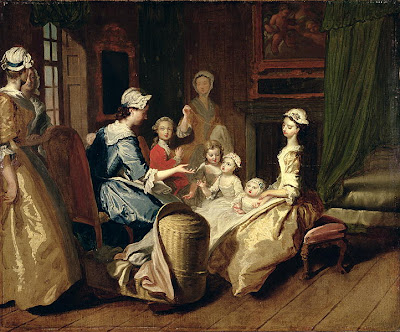I recently discovered--somewhat to my amazement (though why I should be amazed is slightly mysterious now that I think about it: I've all but ignored entire scene for several years)--that I band I really liked, and I mean really liked, a long time ago, was still around. They had disbanded just about the time I lost interest in the entire Solid State scream-o, grind-core, metal, whatever it's-just-loud genre. The band was called Zao. I mean, well... it's still called Zao, I guess. But it's not Zao, you know? No. Whatever. Turns out they pulled themselves back together when I wasn't looking. (Coincidentally, Living Sacrifice is still a thing, too. Christian metal's still a thing. Huh. Ever notice that, that when you lose interest in something it seems absurd, almost ridiculous, that it keeps going without you? I mean, what's the point?
I'm not interested anymore, and that's the main thing. Right...? Where was I?) So Zao's still a thing. They were epic. Man, they were great. I mean, you couldn't be into Christian metal around the turn of the century and not know them. They defined early Christian metalcore. Their influence was enormous. They, along with the aforementioned (and
also still around) Living Sacrifice, basically played godfather to a genre, spawning an embarrassing legion of less-than-impressive but no-doubt well-meaning sound-alikes. But I guess that's not their fault. They were just great, and everybody wanted to be like them. But those wannabe bands are what eventually killed the scene for me. It all sounded the same, and second rate. Zao and Living Sacrifice had already done it, so why bother with the rest? Plus, well... I grew up, evolved, possibly mutated, and a band's loudness no longer was what compelled me. I started listening to all sorts of bizarre things. Bizarre, that is, for me; normal for everyone else. I started listening, for instance, to Jars of Clay.
Jars of Clay?! Growing up is odd. But, to be all literary and stuff, the past in never dead; it isn't even past. A while ago, even though I for the most part get irritated by the sound of it now, I (feeling some strange vibration run along a long abandoned, but once affectionately played, power-chord in my heart) loaded up some old Christian metal albums onto iTunes, an exercise in which Zao featured prominently.
Where Blood and Fire Bring Rest brought chills;
Liberate to ex Inferis still terrified me. But there was also a strange sense of disassociation, like looking at old photos. It's me, but it's not me now, and you get that distinct feeling you are no longer who you were and who you were actually makes you frown or blush. But autobiography aside, their music, even after years of neglect, still produced the distinct throb and tension in my chest, the desire to just scream until your throat bleeds. It was an epoch, I realize. It was a chapter. It was a time in my life that I value but that I'm glad is gone. I'm rambling. Zao. Still a thing. So poking around in the iTunes store, following up links and recommendations (I can't remember the specific trail that brought me to it, but surely it was something arcane and possibly occult, a digital incantation that resurrected a long dead-to-me band), I suddenly saw that "Listeners Also Bought" Zao
. Zao?
Zao! That's still a thing? Not only is it a thing, it's a thing with three albums I didn't know about. 30 bucks later, I prepared to enter the past. The past, it turns out, is smaller than it looks. What was enormous before casts a much smaller shadow now, as if the sun had risen higher (which I suppose, if I were to push this particular aging metaphor further, means that the shadow will get larger again as I grow even older and the sun sets... and that's... wow, that's almost terrifying. I can almost imagine pulling out some of these CDs or MP3s from a dusty box and playing them for my kids. Yes, MP3s in a box. Where do you keep yours? But to return...). I guess what really disappointed me is how almost
exactly the same the new Zao sounds, as if no time has passed. But time has passed. A lifetime has passed. Possibly several lifetimes. Or at least that's how it seems, if you measure a lifetime by how much you've changed. I'm a completely different person now: different politics, different aesthetic, new priorities, bald. An entire metamorphosis. How is it possible some things stood still while I moved forward? It just seems odd. But wait, no, that's not quite true. What I said about them sounding the same, I mean. It's not quite true. They don't sound the same. They sound younger. Or maybe I listen older. Reading the lyrics, listening to Daniel Weyandt scream and grind and gurgle about how shallow Americans are, how difficult life is, about the struggle and injustice of it all, I wondered,
were they always this angry and immature? Surely not. Surely, surely not. Because, if they were... that would have awkward implications for myself. Because I really liked them, thought they were intelligent and important and stuff. And they were. Important, I mean. To me. To the me of then, the different me that I sort of recognize now.
What is all this? I don't know. It's odd, that's what it is. It's self-indulgence, I know, and I'm sorry. I don't really have much to say about Zao, I guess. I liked Zao, but I liked them better in the past than in the now.


























